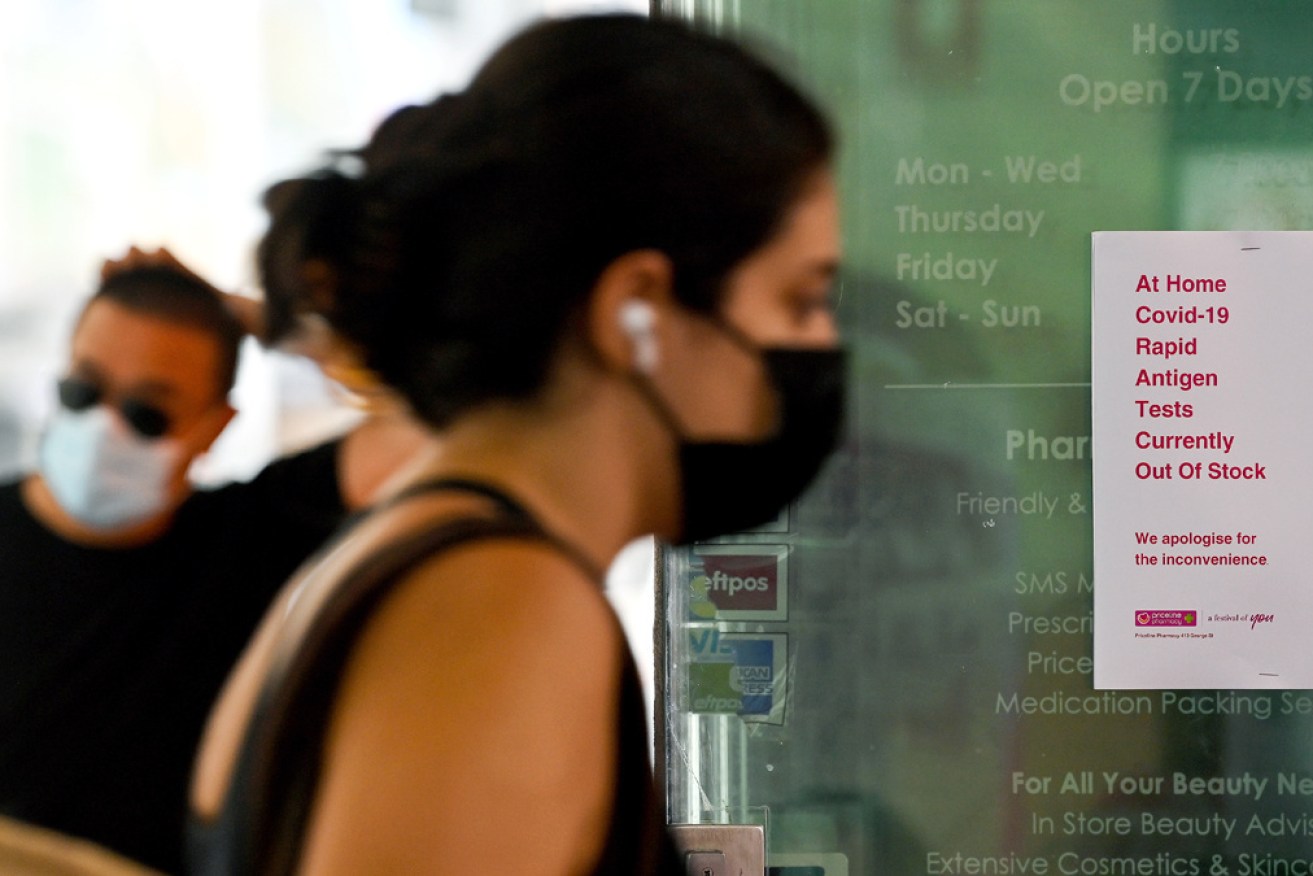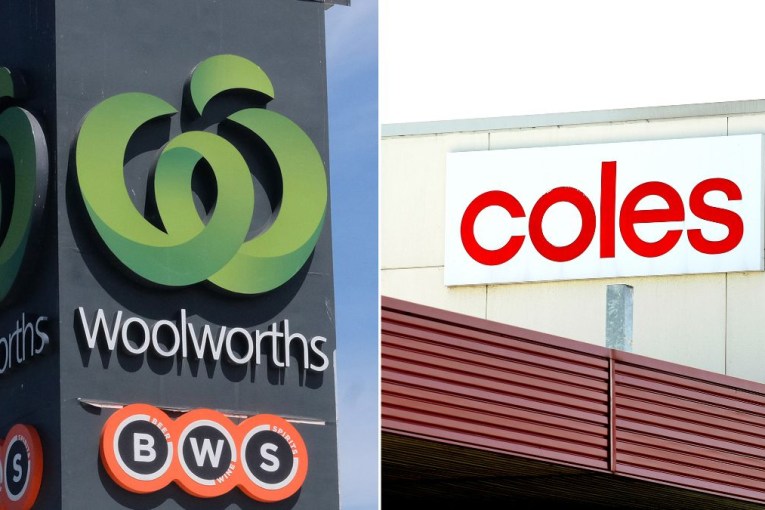‘Very difficult to justify’: Watchdog slams major retailers for price gouging on rapid antigen tests


The ACCC has sent more than 50 letters to retailers asking them to explain RAT prices. Photo: TND
Major retail chains BP and IGA have been named and shamed by the consumer watchdog for ripping off shoppers with exorbitant rapid antigen test (RAT) prices.
Australian Competition and Consumer Commission chair Rod Sims says retailers are still charging “silly” prices for RAT kits, weeks after the regulator issued a national warning about COVID-19 price gouging.
New ACCC data published on Tuesday shows the average test price – based on consumer reports – is currently about $24 per swab.
That’s more than twice the highest wholesale price retailers are paying, which ranges between $3.80 and $11.40 per test, the ACCC said.
The worst price gougers are charging consumers more than $100 a test.
“While $20 retail prices remain lower than the more extreme reports received by the ACCC, this is still an unusually high mark-up that in our view is very difficult to justify,” Mr Sims said on Tuesday.
The ACCC revealed it is sending more than 50 ‘please explain’ letters to major retailers and RAT suppliers asking them to justify their pricing.
Mr Sims said those unable to justify the hefty price tags could face big penalties.
Retailers named and shamed
The ACCC received more than 3900 consumer reports about RATs between Christmas Day and January 26, with shoppers complaining most about pharmacies, petrol stations and convenience stores.
About 90 per cent of reports related to the prices charged for testing kits.
“Community concern about sales practices for rapid antigen tests remains very high, for good reason,” Mr Sims said.
“Businesses now know we will be in touch very quickly if they choose to impose unjustifiably high mark-ups on rapid antigen tests, or make misleading statements to consumers.”
The ACCC is naming and shaming retailers charging high prices in an attempt to change their behaviour.
Appearing on the ABC’s 7.30 on Monday evening, Mr Sims singled out BP service stations and IGA supermarkets, saying some of their shops are charging Australians far too much for testing kits.
He also again mentioned King of the Pack and Metro petrol stations, which were named and shamed by the ACCC several weeks ago.
All these chains are either franchised or contain independently owned shops, meaning individual owners have more freedom over pricing than in corporate store networks like Coles or Woolworths.
The ACCC said on Tuesday that many retailers in these chains wrongly believe they’re allowed to mark up the tests they buy from wholesalers.
Mr Sims told the ABC the ACCC has asked the head offices of IGA and BP to warn their shops about charging excessive prices for RATs.
A spokesperson for BP service stations said head office expects servos that carry its brand to comply with Australian consumer laws.
“We are disappointed to learn a small number of our independently owned and operated BP-branded sites have been selling single rapid antigen tests for high prices,” the spokesperson said.
“Though the BP sites identified by the ACCC are a minority, we acknowledge the seriousness of these claims.”
IGA did not respond to a request for comment before deadline.
RAT supply improving
ACCC analysis indicates many consumers are still paying between $20 and $30 per RAT – but at the higher end, some retailers are charging in excess of $100 per test.
Mr Sims said these high prices are not only the result of price gouging but also reflect a shortage of tests locally and globally.
The shortage has been particularly severe in Australia, where most shops have been sold out of RAT kits for months.
Unions have blamed the Morrison government for failing to buy enough testing kits last year.
Prime Minister Scott Morrison was unable to say how much a RAT kit cost when asked by a reporter after his speech to the National Press Club on Tuesday.
But more tests appear to be finding their way onto shop shelves.
The latest crowdsourced data from findarat.com.au shows more than 80 per cent of retailers now stock RATs, according to Finder analysis.
Though Finder’s Kate Browne said this hasn’t led to lower prices yet.
“With current prices, a family could easily have to shell out hundreds of dollars just in order to test as needed,” she said on Tuesday.
Police called on dodgy RAT dealings
The ACCC has also been investigating several more sinister cases of companies selling RAT tests illegally and making false claims to consumers that the federal government is requisitioning supplies.
The New Daily reported last week that several RAT wholesalers falsely told customers about governments requisitioning their orders.
Mr Sims said on Tuesday that these reports will now be investigated.
“Suppliers must be able to substantiate any claims they make about test availability, and we are asking them to do so,” he said.
The Australian Federal Police and the Therapeutic Goods Administration have also been brought in to investigate claims RATs are being resold illegally.
This involves allegations that some sellers are splitting up testing kits and selling individual components separately, as well as claims that test kits that aren’t approved for home use are being sold in shops.










